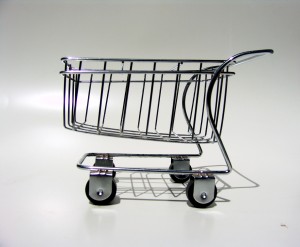 One of the biggest attractions to 3D printing is its accessibility. You can easily purchase your own in-home printer for relatively cheap; and if you just need a handful of items (or don’t feel like owning your own printer), you can place an online order to have your object custom printed for you.
One of the biggest attractions to 3D printing is its accessibility. You can easily purchase your own in-home printer for relatively cheap; and if you just need a handful of items (or don’t feel like owning your own printer), you can place an online order to have your object custom printed for you.
But although online orders are convenient, they still require a shipping wait time. What if you could walk down to a nearby store with your digital model on a flash drive, print your object, and take it straight home?
In-Store 3D Printing
Asada, a popular supermarket chain in the UK, recently announced that it will be offering an in-store 3D printing service. The first printing station will be available in York on October 15th; if the trial is successful, Asada stores across the nation should start offering the service.
The Asada printing service is two-fold: you can create a 3D scan of an item and, once you’re satisfied, order a print. The scanning process takes roughly 2 minutes, and can capture images of everything from a trinket to a full person. The store is even offering “mini-me” figurines, essentially allowing you to create a 3D portrait of yourself or a family member.
Once the scan is completed, you can place an order for a figurine. Objects will be printed using ceramic fluid, and can be picked up in the store within a week. It’s certainly no one-hour photo, but it’s still an incredibly fast turnaround time, especially considering that you won’t have to pay shipping costs.
Going Mainstream
3D printers are useful, but not necessarily practical for every household. As we’ve mentioned before, owning a printer makes a lot more sense for hobbyists, engineers, and anyone else who regularly needs to view physical prototypes of their creations. If you’re only going to use it once a year, there’s no reason to own a physical printer.
In-store printing takes this idea and makes printing accessible and convenient to a far wider audience. Many supermarkets offer copy, print, fax, and even photo development services – all functions that you could technically equip your home office with, but only if you really needed to.
The Asada printer doesn’t seem to offer printing from pre-made digital models – you need to be able to scan the item in the store. But if even this basic variation on the idea takes off, many more printers will find their way into supermarkets, hardware stores, and even craft stores. The more demand there is for a product, the more likely you are to see it on your shopping trip.
